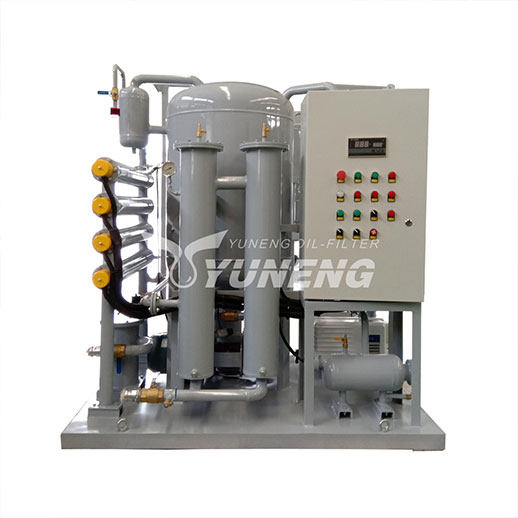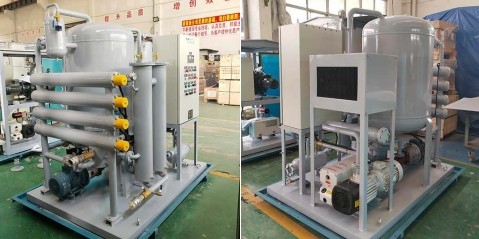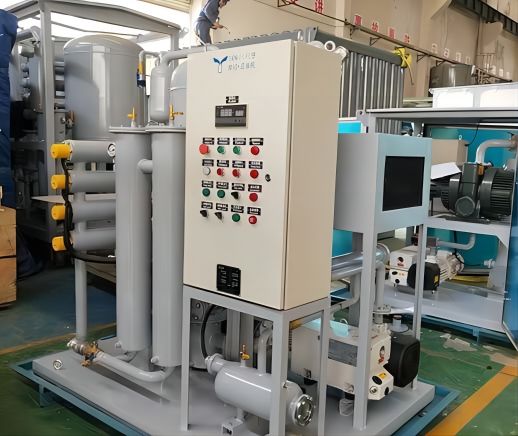A Comprehensive Guide to Choosing the Right Hydraulic Oil Purifier
Hydraulic systems are the workhorses of various industries, providing the power and control required for heavy machinery, manufacturing processes, and much more. To keep these systems running efficiently and prevent costly downtime, maintaining the quality of hydraulic oil is crucial. Contaminated oil can lead to system failures and decreased performance. This is where hydraulic oil purifiers come into play. In this guide, we will explore the key factors to consider when selecting the ideal hydraulic oil purifier for your specific needs.

The Significance of Hydraulic Oil Filtration
Before delving into the selection process, it is crucial to understand the critical importance of hydraulic oil filtration. Over time, hydraulic oil can accumulate a range of impurities, including solid particles, water, and gases. The primary objectives of hydraulic oil purification encompass:
- Solid Contaminant Removal: This typically involves the use of hydraulic oil filters to effectively eliminate solid contaminants such as dirt and debris from the oil.
- Water and Gas Elimination: The removal of water and dissolved gases from the oil is a key focus in hydraulic oil purification. This task is often accomplished through the application of hydraulic oil filtration systems.
- Maintaining Ideal Oil Properties: Hydraulic oil purification aims to ensure that the oil retains its optimal viscosity and chemical properties. Hydraulic oil filtration machines play a central role in achieving this goal.
How to Choose the Right Hydraulic Oil Purifier for Your Needs?
Identifying Your Requirements
The initial step in the process of selecting the most suitable hydraulic oil filter is to precisely identify your specific requirements. Take into account the following factors:
- Oil Type Compatibility: Hydraulic systems often employ various types of hydraulic oil. It is imperative to ensure that the chosen purifier is fully compatible with the specific type of oil used in your system.
- Contaminant Analysis: Carefully assess the primary contaminants present in your hydraulic oil. In cases where there is a substantial water content, it is advisable to seek a purifier equipped with advanced water removal capabilities. An excellent choice for this purpose is a high-end hydraulic oil filtration system.
- Flow Rate Determination: Calculate the necessary flow rate that the purifier should provide to align with the demands of your hydraulic system. It is essential to guarantee that the equipment can effectively process the oil at the required rate, ensuring optimal operation.
- Size and Portability Evaluation: Consider the physical space available for the installation of the purifier. Additionally, contemplate whether the equipment needs to be portable to facilitate its use in different locations or scenarios.

According to The Filtration Techniques
Hydraulic oil purifiers utilize a range of filtration techniques to effectively eliminate contaminants:
- Particle Filtration: This technique efficiently rids the oil of solid particles by employing specialized filters with precise micron ratings. Such filters are frequently integrated into hydraulic oil filters.
- Water Removal: For extracting water from hydraulic oil, hydraulic oil filtration systems employ coalescing or vacuum dehydration technologies. These methods are highly effective in water removal.
- Gas Elimination: The removal of dissolved gases from the oil is achieved through vacuum degassing, a feature present in certain hydraulic oil purifiers.
When selecting equipment, it is advisable to opt for those that incorporate a combination of these techniques to achieve comprehensive oil purification, tailored to your specific requirements.
Other Considerations
Filtration Efficiency
Consider the filtration efficiency of the purifier. This is often expressed in terms of the minimum particle size the equipment can remove. It’s crucial to select equipment with filtration capabilities that match or exceed the size of the contaminants in your hydraulic oil.
Oil Temperature and Viscosity
Hydraulic systems operate under varying temperature conditions. Ensure that the equipment can handle the oil’s temperature range and viscosity. This is essential as it can impact the oil’s flow through the equipment.
Portability and Installation
Determine whether the hydraulic oil purifier needs to be stationary or portable. Some systems may require a permanent installation, while others benefit from a portable unit that can be moved to different locations.
Compliance and Certification
Ensure that the hydraulic oil purifier complies with industry standards and regulations. Look for certification and compliance with relevant standards, indicating the equipment meets established quality and safety requirements.
Cost Considerations
Consider the cost of the hydraulic oil purifier, including initial purchase cost and ongoing operating expenses like filter replacements and maintenance. While budget is essential, prioritize the equipment’s ability to meet your specific requirements.

YUNENG: A Reliable Hydraulic Oil Purifier Manufacturer
As a prominent oil purifier manufacturer based in China, YUNENG boasts extensive expertise and a team of skilled professionals in the field, earning the trust and admiration of both domestic and international customers. As for hydraulic oil purifiers, ZJC series hydraulic oil filtration machine is one of your best choices. Our product range offers a variety of units to cater to your specific needs, including ZJC1.8KY, ZJC3KY, ZJC6KY, ZJC9KY, and ZJC12KY. This Series Hydraulic Oil Filtration Machine is your solution to a multitude of hydraulic oil purification challenges. We are committed to delivering the most cost-effective solutions and ensuring a competitive hydraulic oil filtration machine price.
If you seek further information about the machine’s functionality or require customized products, please do not hesitate to reach out to YUNENG. Our dedicated team is at your service to address your inquiries and provide tailored solutions.

